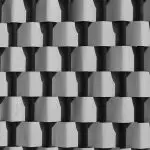Delta 8 cream, a topical cannabis-like product, is gaining popularity as a mild yet effective home remedy for exhaustion and pain. Unlike Delta 9 THC, Delta 8 interacts with the body's endocannabinoid system to regulate pain and inflammation without intense psychoactive effects. Many users find it soothing, reducing muscle tension and joint pain. In today's fast-paced world, exploring topical creams as home remedies for exhaustion offers a promising alternative, providing targeted relief from physical and mental fatigue through natural ingredients or synthetic compounds like Delta 8 THC. However, safety should be prioritized, with starting low doses and consulting healthcare professionals recommended, especially for those with medical conditions or taking other medications.
“Unwind and alleviate pain naturally with Delta 8 cream, a topical sensation in the world of alternative medicine. This synthetic cannabis-like cream offers a unique approach to managing chronic pain and fatigue, gaining popularity as an effective home remedy for exhaustion.
Our article delves into the science behind Delta 8’s remarkable pain-relieving properties, exploring its potential benefits for everyday wellness. We’ll guide you through understanding this innovative product, its safety profile, and how it can be a game-changer for those seeking natural relief from discomfort.”
- Understanding Delta 8 Cream and Its Effects on Pain Relief
- Exploring Topical Creams as Home Remedies for Exhaustion
- The Science Behind Synthetic Cannabis-Like Creams
- Safety Considerations and Potential Side Effects of Delta 8 Cream
Understanding Delta 8 Cream and Its Effects on Pain Relief

Delta 8 cream, a topical cannabis-like product, has gained attention as an alternative pain relief option. Unlike its more well-known counterpart, Delta 9 THC, Delta 8 possesses distinct properties that make it appealing for those seeking natural remedies. This compound is known to interact with the body’s endocannabinoid system, which plays a crucial role in regulating pain perception and inflammation. By binding to CB1 receptors, Delta 8 cream can help alleviate various types of pain, offering a potential home remedy for exhaustion and discomfort.
The effects of Delta 8 are often described as milder compared to Delta 9 THC, making it a preferred choice for individuals looking for subtle yet effective relief without the intense psychoactive experience. Many users report that it provides a soothing sensation and helps reduce muscle tension and joint pain. As a non-invasive home remedy, Delta 8 cream presents an intriguing option for those who prefer alternative methods to manage pain, especially when exploring natural ways to combat exhaustion.
Exploring Topical Creams as Home Remedies for Exhaustion

In today’s fast-paced world, exhaustion has become a common ailment affecting many individuals. Fortunately, exploring topical creams as home remedies for exhaustion offers a promising alternative to conventional treatments. These innovative products are designed to provide relief and rejuvenation directly at the point of need, making them convenient and accessible options for managing fatigue-related discomfort.
Topical creams infused with natural ingredients or synthetic compounds like Delta 8 THC have gained popularity as effective solutions. When applied to the skin, these creams can help alleviate physical and mental exhaustion by enhancing circulation, promoting muscle relaxation, and interactingly with the body’s endocannabinoid system. This approach allows for targeted relief without the potential side effects associated with oral consumption, making them ideal home remedies for exhaustion that people can use comfortably in the privacy of their homes.
The Science Behind Synthetic Cannabis-Like Creams

The science behind synthetic cannabis-like creams, such as Delta 8 cream, involves harnessing the power of plant compounds to offer natural pain relief alternatives. These creams mimic the effects of tetrahydrocannabinol (THC), the primary psychoactive compound in cannabis, but with a lower potential for mental impairment. By isolating specific cannabinoids like Delta 8 THC and incorporating them into topical formulations, these products aim to provide targeted pain management without the intoxicating effects associated with traditional cannabis use.
Unlike home remedies for exhaustion that may only offer temporary relief, synthetic cannabis-like creams deliver compounds directly through the skin, allowing for faster absorption and more precise control over dosage. This direct application ensures that active ingredients interact with the body’s endocannabinoid system, which plays a significant role in regulating pain perception and inflammation, potentially offering effective solutions for various types of chronic pain and discomfort.
Safety Considerations and Potential Side Effects of Delta 8 Cream

When considering Delta 8 cream as a pain relief option, it’s vital to be aware of safety considerations and potential side effects. While often marketed as a natural home remedy for exhaustion and other pains, like many cannabis-derived products, Delta 8 can interact with various factors within the body. Some users may experience mild side effects such as dizziness, dry mouth, or changes in appetite—similar to those associated with traditional cannabis use. It’s crucial to start with a low dose and gradually increase as needed, especially if combining it with other medications.
Additionally, individuals with certain medical conditions like pregnancy, breastfeeding, or existing mental health disorders should exercise extreme caution before using Delta 8 cream. If you’re considering this product for home remedies for exhaustion, consult a healthcare professional first to ensure its suitability for your specific needs and to gain insights into potential interactions with any other medications or supplements you may be taking.
Delta 8 cream, as a synthetic cannabis-like topical cream, offers a promising alternative for managing pain and potentially treating exhaustion. While it shows potential as a home remedy, it’s crucial to approach its use with caution and consult healthcare professionals for personalized advice, especially considering the varying regulatory landscapes and potential side effects. Further research is also needed to fully understand its long-term effectiveness and safety, particularly in comparison to other pain management options.






